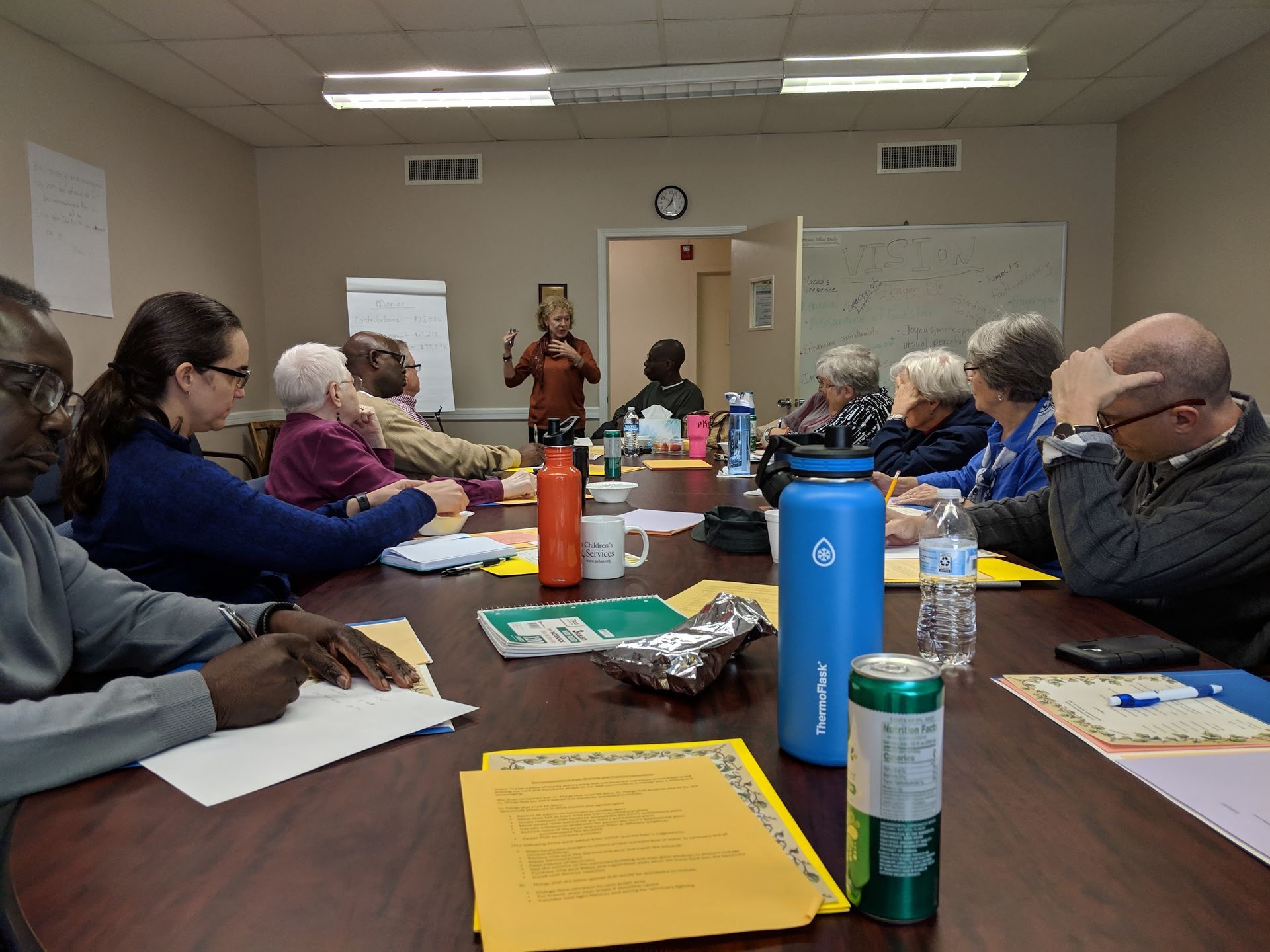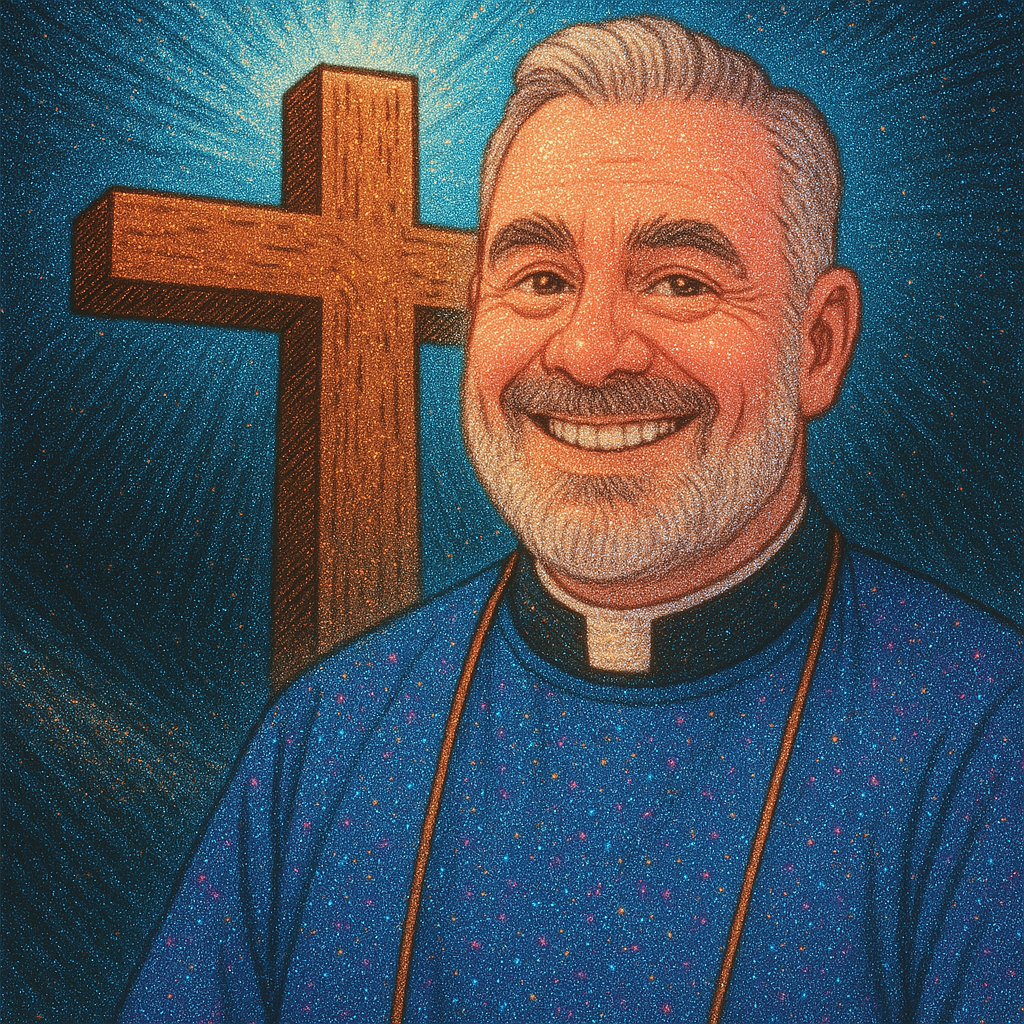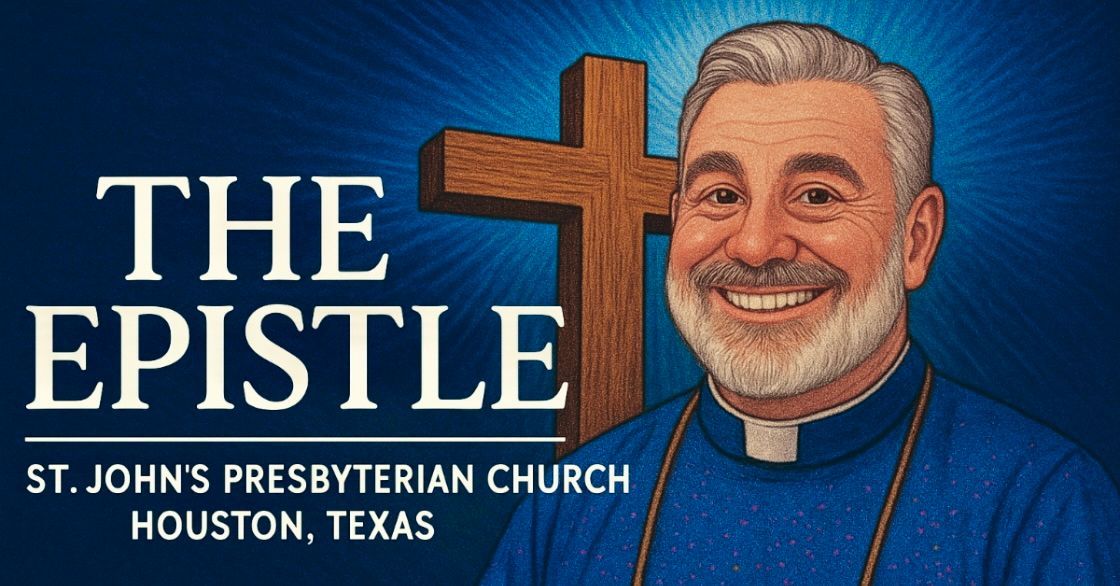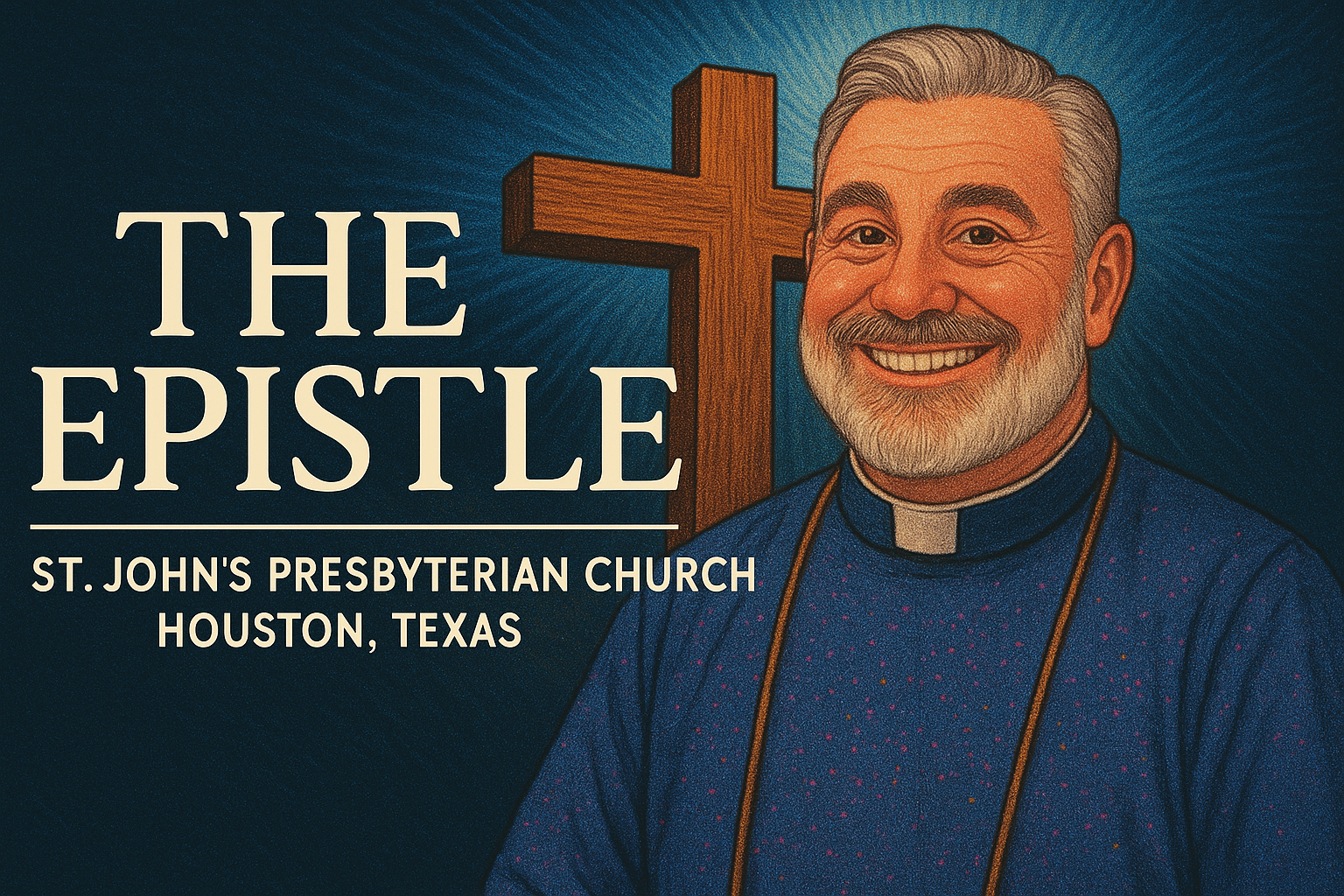What Real Christian Community
Looks Like: Beyond Sunday Smiles
at St. John's Presbyterian
You know what I hear all the time? "Pastor Jon, I've been to six churches in Houston, and everyone's so nice. But I don't really know anyone."
That sentence tells you everything about the state of Christian community today. We've gotten really good at being friendly. We shake hands. We smile in the lobby. We say "see you next week" even though we both know we won't remember each other's names by Tuesday.
But friendly isn't the same as community. And nice isn't the same as known.
I've spent twenty years in ministry, and I've watched churches mistake social pleasantness for authentic fellowship. I've seen people attend the same congregation for years without anyone noticing when they stop showing up. I've sat with folks who can tell me all about their church's coffee bar but can't name a single person they'd call if their marriage fell apart.
That's not community. That's just religious consumers sharing the same building once a week.
So let me tell you what real Christian community actually looks like. Because you deserve better than a church that treats you like a customer. And because Houston has enough churches where you can stay anonymous forever if you want to.
When Church Feels Like a Performance
You're Watching
Here's the problem with most churches in Houston. They've turned Sunday morning into a show. There's nothing wrong with excellence or good music or thoughtful preaching. But somewhere along the way, we started thinking church was something you attend rather than something you belong to.
I wrote about this in Stewardship: Faithful, Fruitful, and Flourishing when I talked about how we've confused consumption with participation. We sit in rows like we're at a theater. We watch people on stage perform for us. We evaluate the experience like we're judging a restaurant.
Then we go home.
And we call that church.
Real community doesn't happen in rows. It happens in circles. It happens when people can see each other's faces, learn each other's stories, and carry each other's burdens. It happens when you're not watching someone else live out their faith but actually living out yours alongside other people doing the same.
At St. John's Presbyterian, we're small enough that there's no hiding in the back row. You can try, but someone will find you. Someone will learn your name. Someone will ask how you're really doing, not the "fine thanks" version but the honest version.
That makes some people uncomfortable. I get it. Anonymity feels safe. You can control what people know about you when you stay on the surface. But safety isn't the same as belonging. And you can't have real community without vulnerability.
The Difference Between Programs and Relationships
Walk into most Houston churches and they'll hand you a glossy brochure listing forty different programs. Small groups for every demographic. Events for every season. Activities for every interest. They've got it all organized and scheduled and facilitated.
And most of it stays shallow.
Because programs don't create community. They create programming. There's a difference.
I'm not against structure. Our weekly Bible studies at St. John's have structure. Our mission work has structure. But structure serves relationships. It doesn't replace them.
Here's what I mean. A program says, "We have a young marrieds group that meets the second Thursday of every month to discuss a book we're all reading." That's fine. But community says, "John and Sarah are struggling with infertility, and three couples from church bring them dinner every week and sit with them in their grief even though it's awkward and nobody knows what to say."
See the difference? One is scheduled and clean and manageable. The other is messy and organic and real.
Real Christian community happens when people's actual lives intersect. When you know someone well enough to notice they're struggling before they tell you. When you care enough to show up even when it's inconvenient. When your faith stops being about what happens on Sunday morning and starts being about how you love people Tuesday afternoon.
In When You Choose Silence: A Contemplative Journey into the Voice of God, I talk about how spiritual depth requires slowing down enough to actually see people. To notice. To care. You can't program that. You can't schedule it between the worship service and the coffee bar.
You just have to be present. And being present takes time.
What Happens When People Actually Know Your Name
Last month, Robert missed two Sundays in a row. Robert never misses church. He's been coming to St. John's for eight years.
By Monday of the second week, four people had called him. By Tuesday, someone stopped by his house. Turns out Robert's wife had been in the hospital. He'd been sleeping in a chair next to her bed for ten days.
Nobody had to organize a response team. Nobody checked a database to notice Robert's absence. People just knew. Because they knew Robert. They knew his routine. They knew something was wrong.
That's what happens in real community. People notice when you're not there. They notice when you're struggling even if you're still showing up. They care enough to ask the second question, the one that gets past "fine thanks" to the truth underneath.
You can't get that in a church of three thousand people where you're one face in an ocean of faces. You can't get that in a church where "community" means showing up to the same event at the same time as five hundred other people you don't know.
But you can get it at St. John's. Because we're small enough that your absence is noticed and your presence matters.
That's not a luxury. That's what Christian community is supposed to be.
The Mission Connection Nobody Talks About
Here's something I've learned over twenty years in ministry. Churches that focus only on taking care of their own members stay shallow forever. But churches that look outward, that serve their neighborhoods, that engage in real mission work, those churches develop deeper bonds.
Because when you serve alongside someone, you see who they really are. When you're working in our community garden, sweating in the Houston heat, trying to figure out why the tomatoes aren't growing, you can't maintain the Sunday morning smile. You're just yourself.
When you're packing food boxes for families who can't make rent this month. When you're mentoring a kid who needs someone to show up. When you're visiting someone in the hospital or fixing a widow's leaking roof or teaching English to refugees, you're not performing Christianity. You're living it.
And that's where real community forms.
St. John's isn't focused on building a bigger building or adding more programs. We're focused on serving southwest Houston. Our community garden feeds neighbors who need fresh vegetables. Our tutoring program helps kids who are falling behind in school. Our clothes closet provides professional wear for people trying to get jobs.
And the people doing this work? They're becoming family. Because shared mission creates bonds that shared consumption never will.
As I explore in Stewardship: Faithful, Fruitful, and Flourishing, faithful living means using what we've been given for kingdom purposes. When a church does that together, community happens naturally. You don't have to manufacture it with programs and ice breakers.
The Vulnerable Truth About Authentic Fellowship
Let me be honest about something. Real community is harder than the alternative.
It's easier to stay surface level. It's easier to show up on Sunday, sing the songs, hear the sermon, shake some hands, and go home. It's easier to keep your struggles private and your faith neat and your life separate from everyone else's.
Real community requires vulnerability. It requires admitting you're struggling with your marriage or your kids are making terrible choices or you're barely hanging on financially or you're wrestling with doubt about everything you thought you believed.
And that's scary.
But here's what I've seen happen at St. John's. When one person gets honest, it gives everyone else permission to drop the mask. When someone admits they're struggling, suddenly three other people say "me too." When we stop pretending we have it all together, we discover we're all just broken people trying to follow Jesus and doing a messy job of it.
And that's where grace enters. That's where real transformation happens. Not in the pretending, but in the honesty.
I write about this in When You Choose Silence when discussing how contemplative practice strips away our false self. Community does the same thing. When people know you long enough and well enough, you can't maintain the performance. They see through it.
The question is whether you're in a church where that's safe. Where people respond to your brokenness with grace instead of judgment. Where failure doesn't disqualify you but deepens everyone's understanding of how much we all need Jesus.
That's the kind of community we're trying to build at St. John's. Imperfectly. Slowly. But authentically.
What About Conflict? Because It's Coming
Nobody talks about this, but real community includes conflict. If you're in a church where everyone always agrees and nobody ever gets upset, you're not in real community. You're in polite acquaintanceship.
When people care about each other and care about their church, they disagree sometimes. They have different visions. They handle situations differently. They step on each other's toes.
The question isn't whether conflict happens. It's how you handle it when it does.
At St. John's, we've had conflicts. We've had people disagree about how to spend money or what mission work to prioritize or how to handle difficult situations. We've had hurt feelings and misunderstandings and moments when staying together seemed harder than splitting apart.
But we've stayed together. Because community means working through the hard stuff instead of walking away when things get uncomfortable. It means having the difficult conversations. It means forgiving each other repeatedly because we're all going to mess up repeatedly.
I've watched churches split over carpet color while claiming they're all about love and unity. I've watched Christians abandon each other over political differences or worship style preferences or theological disagreements about secondary issues.
Real community says we're committed to each other even when we disagree. Even when we irritate each other. Even when someone makes a decision we think is wrong.
That doesn't mean we're pushovers. It means we love each other enough to stay in the room and work it out instead of walking away. And that's rare in American Christianity right now, where we treat churches like we treat streaming services. If we don't like this one anymore, we'll just switch to a different one.
The Intergenerational Gift You're Missing
Most Houston churches segregate by age. Young adults worship in the contemporary service. Seniors worship in the traditional service. Kids are somewhere else entirely. Everyone stays in their demographic bubble.
We're missing something profound when we do that.
At St. John's, you worship next to people who are seventy years older than you and thirty years younger than you. You sit next to the teenager still figuring out what she believes and the widow who's walked with Jesus for six decades. You hear different perspectives. You learn from different generations.
And something beautiful happens.
The young adults learn steadiness from the older saints who've weathered storms they can't imagine yet. The seniors find hope in the young people's fresh faith and energy. The kids see what it looks like to follow Jesus for a lifetime, not just until it gets inconvenient.
You can't manufacture that with programs. You can't get it when everyone's the same age, in the same life stage, dealing with the same issues. You need the whole body of Christ. You need people at different places in the journey.
That's community. Different people at different stages with different gifts, all pointed in the same direction, all committed to loving each other and serving their neighbors.
The Practical Details Nobody Mentions
Okay, let's get practical. What does this actually look like day to day?
Real community means you have people's phone numbers and you actually use them. It means when someone crosses your mind on Thursday afternoon, you text them and ask how they're doing. It means accepting dinner invitations even when you're tired because relationships require showing up.
It means joining the Bible study even though you're nervous about whether you'll fit in. It means volunteering for the community garden even though you've never grown anything in your life. It means saying yes when someone asks for help moving furniture or needs a ride to the airport or wants prayer for their kid who's struggling.
It means showing up Sunday after Sunday even when you don't feel like it. Because community isn't built on feelings. It's built on commitment. It's built on being present consistently enough that people learn to count on you.
At St. John's, this happens around meals more than meetings. It happens in conversations after worship where people linger instead of rushing out. It happens in the work we do together serving our neighborhood. It happens slowly as strangers become acquaintances become friends become family.
You can't force it. You can't schedule it. You just have to create space for it and show up consistently enough for relationships to form.
Why Size Actually Matters
I know some people say size doesn't matter for community. They say you can have authentic fellowship in a megachurch, you just have to join a small group.
I don't buy it.
Here's why. In a church of three thousand, the small group is your community and the church is just the place you attend. You're connected to twelve people and disconnected from everyone else. That's not church community. That's just a really inefficient way to organize a Bible study.
In a church of a hundred and fifty, the whole church can be your community. You know most people's names. You recognize faces. You have some sense of who's struggling and who's celebrating and who needs support.
That doesn't mean small churches are automatically better. I've seen small churches that were toxic and unhealthy and anything but community. Size alone doesn't create health.
But size does create opportunity. It creates the possibility of knowing and being known by more than the ten people in your small group. It creates accountability because your absence is noticed. It creates depth because you can't maintain performance mode with a hundred people watching you week after week.
At St. John's, we're not trying to grow into a megachurch. We're trying to stay small enough that community is possible and healthy enough that people want to belong. We're Presbyterian, which means we value order and thoughtfulness. But we're also trying to value people and relationships and mission over growth for growth's sake.
As I discuss in Stewardship: Faithful, Fruitful, and Flourishing, faithfulness matters more than size. We'd rather be faithful with a hundred and fifty people than impressive with three thousand.
An Invitation to Something Different
So here's what I'm offering. Not a perfect church. We don't have one of those. Not a church where everyone agrees about everything. Not a church where life is easy and faith is simple and community happens automatically.
I'm offering a church where people know your name. Where your presence matters and your absence is noticed. Where we're trying to love each other and serve our neighbors and follow Jesus together, imperfectly but authentically.
We worship at 11:00 on Sunday mornings at 5020 West Bellfort Avenue in southwest Houston. The building isn't fancy. The music is good but we're not recording albums. The preaching is thoughtful but I'm not TED-talk material.
What we are is real. What we offer is community. What we're building is a family of faith that actually functions like family, messy and committed and in it together for the long haul.
If you've been church shopping in Houston and coming up empty. If you're tired of being a face in the crowd. If you want to belong somewhere instead of just attending somewhere. If you're ready to drop the mask and be known. If you want your faith to connect to real life and real service and real relationships.
Come visit St. John's Presbyterian. Come meet people who will learn your name and notice when you're struggling and celebrate when you're thriving. Come join a community that's more concerned with faithfulness than flashiness, more focused on mission than performance, more committed to relationships than programs.
We're not for everyone. Some people prefer the anonymity of larger churches. Some people want more polish and production value. Some people aren't ready for the vulnerability real community requires.
But if you're looking for a church where you can actually belong, where your life can intersect with other lives, where faith is lived out in service and relationships, then we might be exactly what you're looking for.
Our doors are open. Our community has room for you. The invitation stands.
Come and see what real Christian community looks like. It's not perfect. But it's real. And maybe that's exactly what you need.
Interested in learning more about authentic faith and community? Check out these related articles from St. John's Presbyterian:
St. John's Presbyterian Church
5020 West Bellfort Avenue
Houston, TX 77035
(713) 723-6262
stjohns@stjohnspresby.org
Sunday Worship: 11:00 AM
Everyone welcome. Come as you are.
Pastor Jon Burnham





